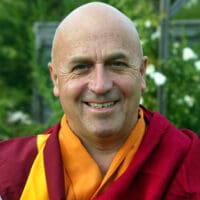One of the main challenges of the 21st century is to reconcile short-term imperatives—providing for one’s family’s need, surviving the fluctuations of the economy—with the search for life satisfaction in the medium term, and the preservation of the environment for the sake of future generations in the long term.
Altruism is the only unifying concept that provides citizens, economists, social activists, politicians, and environmental scientists a way to work together for a better world. If we have more consideration for others, we will move towards a caring economy that remedies poverty in the midst of plenty; we will be more concerned by with the improvement of well-being within society and we will care more about the fate of future generations and of the eight million other species who are our co-citizens in this world.
Altruism is also inspired by wonderment or awe that arises in our mind when meeting the eyes of a newborn child, witnessing an act of kindness, or embracing beautiful natural scenery. Wonderment generates respect. Respect engenders the desire to take care of what we respect, and this leads to action.
Human intelligence will have marked the history of the planet by its fabulous development, its philosophical and metaphysical thinking, its art, and its sciences, but also by its role as super-predators. No other species has transformed the biosphere so quickly and so radically. The estimated number of Homo sapiens who have lived on Earth is about 110 billion. This is the number of terrestrial and marine animals we kill every two months.
The balance between growth and decline lies in a “sustainable harmony;” that is, a situation that would ensure a decent way of life for everyone and reduce inequalities while ceasing to exploit the planet and the living world at an unbridled pace.

Matthieu Ricard, PhD
Karuna-shechen
Convening Faculty, Fellow
Matthieu Ricard, Ph.D., is a Buddhist monk at Schechen Monastery in Kathmandu, Nepal. Born in France in 1946, he received his Ph.D. in Cellular Genetics at the Institut Pasteur under … MORE

